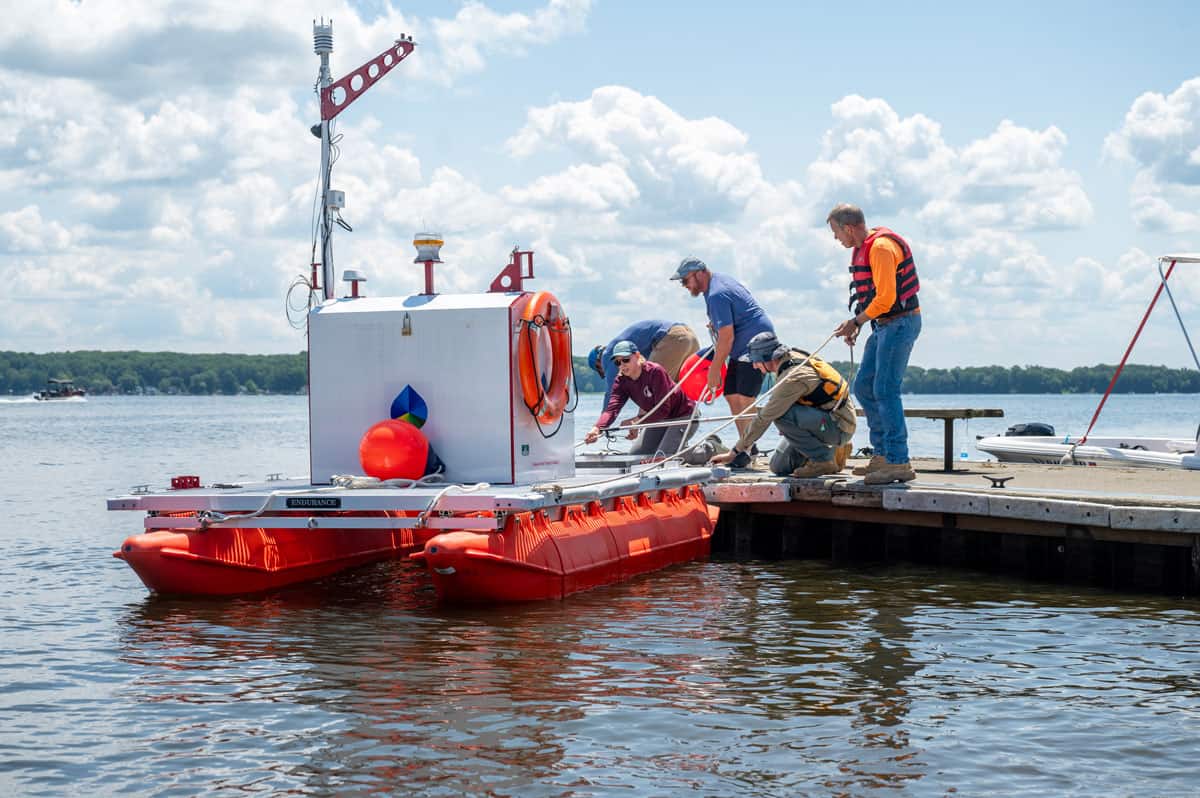$4.7 Million Grant From New York State to Support Water Quality Research on Chautauqua Lake

Chautauqua Institution is celebrating a major investment by New York State in the science-based conservation of Chautauqua Lake. A $4.7 million grant to Chautauqua Institution from the New York State Environmental Facilities Corporation (NYSEFC) will sustain scientific research and related infrastructure investments in Chautauqua Lake through May 2027.
Institution President Michael E. Hill, says this investment from New York State represents a milestone in the multiyear vision for Chautauqua Lake conservation named in Chautauqua Institution’s strategic plan, 150 Forward.
“When our Board of Trustees in 2019 named the development of science-based solutions for the conservation of Chautauqua Lake as one of the Institution’s top four priorities, they did that knowing the best role for Chautauqua Institution to play in this work would be coalition-building, including bringing new resources to support lake research,” Hill said. “This grant signals a milestone in this work, as it represents a major commitment by New York State in developing science-based solutions for our state’s struggling freshwater systems.”
The grant is administered by the NYSEFC, which is empowered to direct financial assistance to eligible recipients for the planning, design and construction of projects that provide a water quality benefit. It supports watershed and in-lake research, infrastructure, and mitigation efforts including:
- Confirming the efficacy of streambed stabilization, vegetative buffers and rain gardens and identifying possible design improvements leading to best practices for further projects that can reduce nutrient and pollutant loads that negatively impact water quality.
- Designing and constructing additional integrated tributary monitoring stations to provide insights into the nutrient pollution from each of these “micro-watersheds” of Chautauqua Lake.
- Installing weather monitoring stations on the in-lake vertical profilers, tributary stations, and land-based stations to better understand how weather events impact how Harmful Algal Blooms (HABs) form and to better predict future HABs.
- Supporting data development and analysis to inform nutrient and pollutant mitigation.
- Supporting multi-sensor platforms (Vertical Profilers), ancillary buoy and nutrient sensor deployment to measure physical, chemical and biological factors in the lake that are critical for determining effectiveness of capital projects.
“This grant benefits the entire Chautauqua region, and we are grateful to have played a role in bringing this critical support to Chautauqua County,” Hill said. “Alongside county government, the members of the Chautauqua Lake and Watershed Management Alliance, regional foundations, and private donors from the Chautauqua community, we are building a model of collaboration here that can help communities across New York State and beyond who are struggling to find solutions to intractable problems. While there remains much work to do, we are committed to ensuring Chautauqua Lake is a thriving freshwater system for generations to come, and we redouble our commitment to working with county and state partners to assure this vision.”
ABOUT CHAUTAUQUA INSTITUTION
Chautauqua Institution is a not-for-profit, 750-acre community on Chautauqua Lake in southwestern New York State where approximately 7,500 people are in residence on any day during a nine-week summer season. More than 100,000 attend scheduled public events each year and even more engage online via the streaming channel CHQ Assembly. Chautauqua is dedicated to the exploration of the best in human values and the enrichment of life through a program that explores the important religious, social and political issues of our times; stimulates provocative, thoughtful involvement of individuals and families in creative response to such issues; and promotes excellence and creativity in the appreciation, performance and teaching of the arts.
###
Save Your Trip
Fill out the form below to save your trip. You will receive a link to your saved list via email.
Save Your Favorites
Fill out the form below to save your favorites. You will receive a link to your favorites list via email.
"*" indicates required fields
Notice!
You have now entered the season. Some website content may differ depending on the current season we are in: Summer or Fall/Winter/Spring. You can toggle between the two season options at any time.